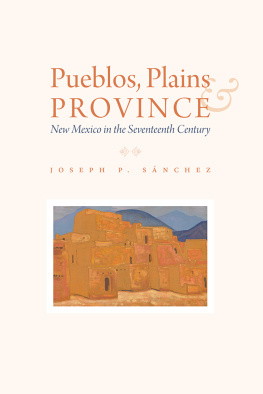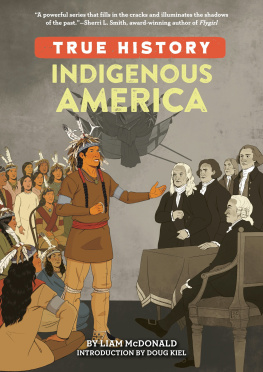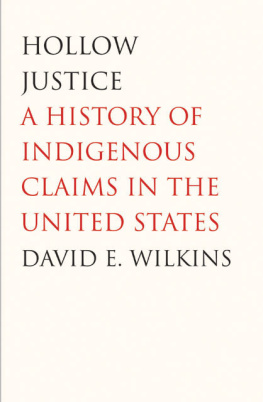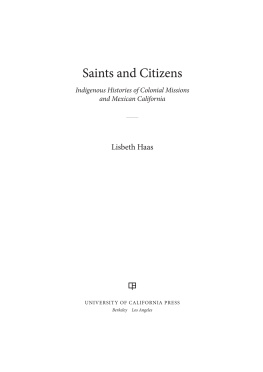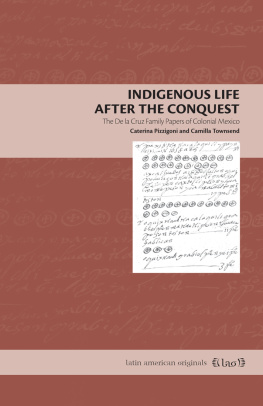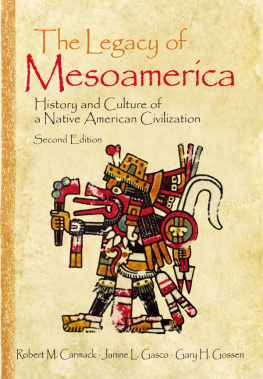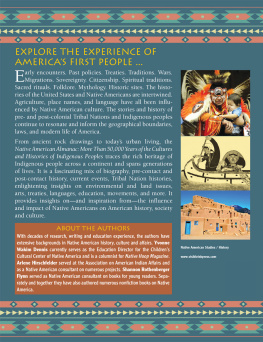2016 by Vanderbilt University Press
Nashville, Tennessee 37235
All rights reserved
Library of Congress Cataloging-in-Publication Data
LC control number 2015014603
LC classification number F1219.3.H56B73 2016
Dewey class number 972'.01dc23
ISBN 978-0-8265-2097-5 (hardcover)
ISBN 978-0-8265-2099-9 (ebook)
W ORK ON A LVA I XTLILXOCHITLS N ATIVE A RCHIVE has spanned many years and many communities of friends, colleagues, and mentors. Along the way I have accrued countless debts. My work on don Fernando de Alva Ixtlilxochitl and don Carlos de Sigenza y Gngora began in graduate school during classes I took, serendipitously in the same semester, with Margarita Zamora and Steve Stern. In those early research papers, I began to see underexplored connections between the two Mexican intellectuals. Though that work took place many moons ago and the project has taken numerous turns since, I owe the origins of this book to their foundational guidance. A travel grant from the University of Wisconsin-Madison allowed for an early trip to see the manuscriptsthen housed at Cambridge Universitythat are central to this study. I am grateful to Margarita and Steve whose continued support and careful direction were instrumental to my initial thinking and writing about Alva Ixtlilxochitl and Sigenza. I also thank Steve Hutchinson and Guido Podest. Coursework and conversations with these professors provided the intellectual foundations for Alva Ixtlilxochitls Native Archive.
A residential fellowship at the Newberry Library in the summer of 2007 came as I was beginning to reimagine the earlier iteration of the project as a book. I am especially grateful to Andrew Laird who orchestrated the seminar that was the capstone to my invigorating months-long stay in the reading room at the Newberry, where I was able to work with important manuscript copies of Alva Ixtlilxochitls works. The framework and the speakers who participated in the workshop, European and New World Forms of Knowledge in Colonial Spanish America, ca. 15201800, proved to be extraordinarily stimulating for my own thinking about Alva Ixtlilxochitl and Sigenza. I am particularly grateful to Andrew, David Boruchoff, Cristin Roa-de-la-Carrera, and Lisa Voigt for their encouragement and advice as I was developing this project. During that summer I also had the good fortune to meet Susan Schroeder in the Newberry reading room. I owe a tremendous debt of gratitude to Susan for her early and enduring support for my work, as well as her strategic guidance throughout.
At the University of Iowa, I have benefitted from enriching conversations and sustained encouragement from colleagues and friends, particularly Denise Filios, Claire Fox, Lisa Gardinier, Cathy Komisaruk, Kathleen Newman, Mercedes Nio-Murcia, Phillip Round, and Christine Shea. I also thank Daniel Balderston, who extended enthusiastic and crucial support for my project while he was at the University of Iowa. I would like to acknowledge the University of Iowas Arts and Humanities Initiative award, which allowed me to travel to Mexico City and conduct critical research at the Archivo General de la Nacin.
I am indebted to many colleagues and friends who have offered feedback at conferences and other gatherings. I am especially grateful to Rolena Adorno, Galen Brokaw, Jongsoo Lee, Tatiana Seijas, David Tavrez, and Camilla Townsend, who each at various moments asked key questions and made probing comments as I worked through the contours of my analysis. My work on this book has coincided with two other collaborative projects related to Alva Ixtlilxochitl, which have been thoroughly stimulating and nourishing. I thank Bradley Benton, Pablo Garca Loaeza, and Peter Villella for their countless hours of effort and conversation, as we toil over translations of Alva Ixtlilxochitls writings. I am grateful to Wayne Ruwet for generously sharing his deep knowledge and keen interest in the topic. This book would be unimaginable without his finding of the original Alva Ixtlilxochitl manuscripts decades ago. Mnica Daz, my dear friend and interlocutor, has been a steady source of encouragement and insight. I am forever grateful to her for her unstinting confidence in the value of this project and my ability to complete it effectively. I claim as my own all flaws and errors contained within the following pages, but any insights found here are indebted to ongoing dialogue with these and other esteemed colleagues.
I am truly fortunate to have been able to publish Alva Ixtlilxochitls Native Archive with Vanderbilt University Press. Eli Bortz expressed early were prepared as the essay Alva Ixtlilxochitl and the Guadalupe Legend: The Question of Authorship, which I contributed to a volume that is forthcoming from University of Arizona Press.
My parents, Michael and Suzanne Brian, have eagerly awaited the conclusion of this book. I thank them for the jovial support they have extended during its many years of incubation. I also thank my beloved siblings and their families and my dear in-laws for their support. Though my mother-in-law, Doris Gollnick, did not live to see the completion of this project, I would like to remember her enduring support here. Mira and Silas Gollnick, my bright shining stars, came into the world as this book was getting underway. Each stage of my research and writing was marked by new joys and feats in their young lives. As I complete this project, they are developing their own passions and beginning their own adventures in reading. To Brian Gollnick, my life partner and cherished intellectual companion, I owe more debts and gratitude than I can fully express here. He has supported and encouraged me at each stage, both as an enthusiastic interlocutor and an ever-present partner in parenting. His love and support have made for the bedrock of this book.
Giving and Receiving
A gift has both economic and spiritual content, is personal and reciprocal, and depends on a relationship that endures over time.
Anne Carson, Economy of the Unlost
A LVA I XTLILXOCHITLS N ATIVE A RCHIVE FOCUSES ON the production and circulation of Native American knowledge within and beyond the indigenous communities of colonial Mexico. I begin with a gift, passed materially and symbolically from a family with deep roots in Mexicos pre-Columbian past to a son of recent Spanish immigrants. In the 1680s, don Juan de Alva Corts, a son of the mestizo chronicler don Fernando de Alva Ixtlilxochitl (ca. 15781650), gave his fathers collection of native alphabetic and pictorial texts to the creole intellectual don Carlos de Sigenza y Gngora (16451700). This collection became one of the most important archives on pre-Columbian and conquest-era Mexico, and the cultural significance attached to its transfer as a gift has far-reaching relevance. Scholars have long viewed Sigenzas inheritance of the Alva Ixtlilxochitl materials as a key event in the emergence of patriotic Mexican history (Brading 1991, 36667; 371). My study enhances that appreciation by examining the complex circumstances and tangled relationships that provide a background to the moment when Alva Ixtlilxochitls archive passed to Sigenza, and so from the control of a native-identified family to that of a European-descended scholar.


